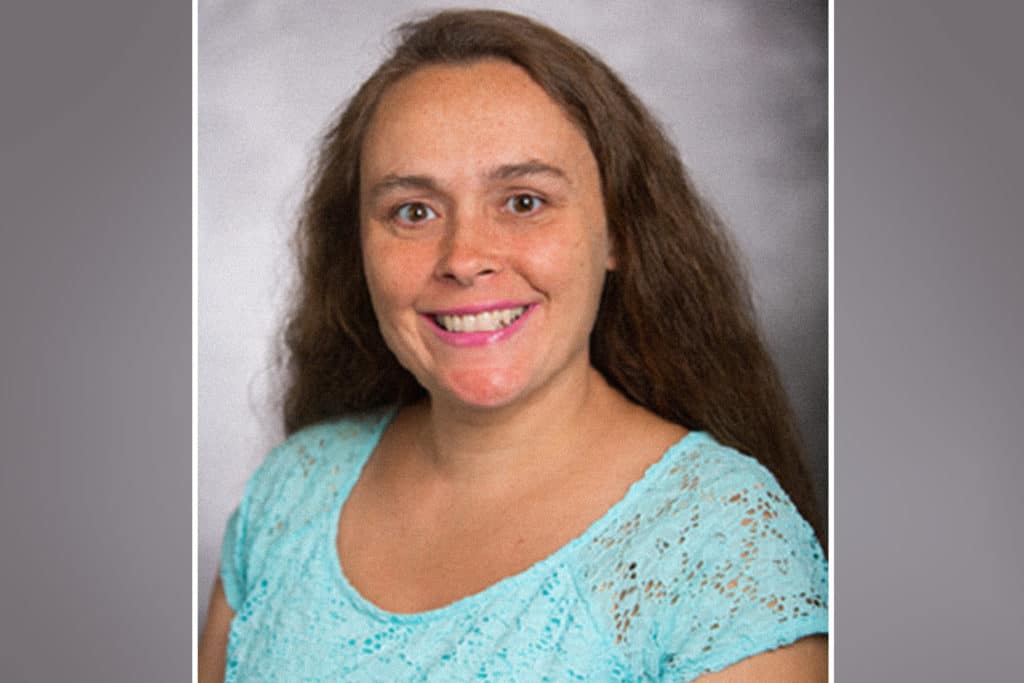Health Economist Reveals New Strategy to Increase Access to Care for Dementia Population

Dr. Miranda Moore is a well-published Assistant Professor in Family and Preventive Medicine Health, Research Coordinator and Health Economist who has spent years studying the provider workforce and how it aligns with needs of today’s patient populations. She has recently focused on elderly populations in relation to specialties such as neurology and geriatrics and how well these populations are being screened to identify cognitive issues.
“In the work with my colleagues, we started asking ourselves, ‘How do we leverage the community resources that already exist, but are not necessarily being heavily utilized,” shared Dr. Moore. “We looked at Medicare claims data in regards to the elderly population in the state of Georgia to determine how many were actually receiving screenings through exams such as the Annual Wellness Visit? The answer was that the number was distressingly low.”
“I’m very passionate about access to care and preventative services, and the Annual Wellness Visit is a big preventative service,” Dr. Moore continued. “But there’s wide variation in how the cognitive screening can be administered. So, the question comes down to: ‘How do we standardize and increase screenings and increase specific diagnoses for cognitive issues?’ From there, we started brainstorming on what a program would look like where primary care physicians could help patients and families leverage community resources to improve not only their own lives, but also improve the healthcare system as a whole. We realized that funding such a program could be justified by the significant cost savings that it can save the healthcare system through earlier detection of illness, earlier diagnosis and earlier connection to the right resources to receive the full-spectrum of medical and community care. We made this proposal to legislators in the State of Georgia and we were all very hopeful.”
Georgia Memory Net is launched as a vehicle to support access to care for those struggling with dementia
Dr. Moore shared that she was ecstatic when she found out that the program, Georgia Memory Net, was funded and approved by the legislature. “I felt like this was an amazing moment for everyone in this state,” she declared. “Because I think everyone in Georgia at some point is going to be touched by diseases such as Alzheimer’s, whether they themselves have it or experience it through a friend or immediate family members. It’s just a fact of life with our aging population and increased life span.”
The reason Dr. Moore feels that Georgia Memory Net will make such as strong impact is that she believes many primary care physicians are unaware of just how many community resources are available and how many services are offered for dementia care through organizations such as area agencies on aging. “I think many primary care physicians are hesitant to diagnose with dementia if they feel that they don’t have any tools to offer them for treatment,” she explained. “We know there’s not a strong pharmacological intervention to reverse most of these conditions. But what we do know is that there are community services that can highly benefit patients in addition to medication. I believe providing physicians with this knowledge will help to increase their openness to not just screen but also to diagnose and treat dementia. It’s one of the reasons that when a patient is referred to a memory assessment clinic run by Georgia Memory Net, that patient will return to the private referring primary care provider with a care plan—a one-page document summarizing the specific diagnosis and summarizing the next steps in the patient’s care.”
“Anyone evaluating the value of this program needs to understand that if a patient or their care partners are sitting in an exam room receiving a dementia diagnosis in a primary care or neurology setting, they’re often in a state of shock,” she continued. “They’re not necessarily retaining the information about what is the disease, what are the symptoms and what is the disease trajectory over time. When we can send a patient and their family back to a PCP with printed information such as any fall risks in the home that have been identified, driving restrictions and the strategy for ongoing assessment and treatment of the condition, I think it makes it much easier on that physician. Identifying potential issues that might occur in advance is very relieving to patients and families and they can move forward with an action plan developed by providers specialized in memory and cognitive impairments.”
Dr. Moore also explained how Georgia Memory Net is structured to make sure as much of the population is screened, diagnosed and treated as possible. “Many people don’t realize that some of the cost savings to the system come from people who don’t understand the symptoms that are coming through the trajectory of their disease,” she said. “And so something will happen and they won’t know that it’s actually a normal part of the disease progression. They’ll naturally seek out care for those symptoms and if the provider they see is not aware of the specific diagnosis, it results in unnecessary services burdening the system, not to mention the stress placed on patients and care partners from additional clinic visits and hospitalizations due to some of these improperly treated symptoms.
Georgia Memory Net: From the programmatic to the personal
Dr. Moore believes not only in the state-wide impact that Georgia Memory Net can have on the health of populations, she also sees the personal impact it can make in her own life. “My grandfather is one of those people that I believe has Alzheimer’s disease, but he has never received a specific diagnosis,” she stated. “He’s a perfect candidate for this program. So when I think of the potential impact on my life and all of the other lives that can be impacted by these memory assessment clinics and the connections to services that they can enable, it’s a real increase in the quality of life for everyone as they go through the remainder of that life with whatever condition they’re facing.”
Miranda Moore, Assistant Professor at Emory University School of Medicine
Dr. Moore is an Assistant Professor in the Department of Family and Preventive Medicine. She is also the Research Coordinator for the Emory Family Medicine Residency Program. Before joining the faculty at Emory, Dr. Moore was an economist at the Robert Graham Center for Policy Studies in Family Medicine and Primary Care within the American Academy of Family Physicians. She has also worked for the U.S. Department of Labor, Employee Benefits Security Administration in the Office of Policy and Research, Division of Research and Economic Analysis. She has taught Statistics at Hofstra University and Game Theory at Stony Brook University.
Dr. Moore’s current research centers on primary care access to care, including:
- Telehealth and advanced access
- Primary care workforce, including demand and supply of providers, practice characteristics, and patient panel size
- Primary care delivery/physician practice transformation, with an emphasis on care management, patient complexity, physician reimbursement, PCMH transformation and quality measures
Dr. Moore received her MA (2006) and PhD (2010) in Economics from Stony Brook University in Stony Brook, NY.
Georgia Memory Net at a Glance
What is Georgia Memory Net and why does it exist? There’s so much information about Alzheimer’s and related dementias in Georgia, and how to diagnose and treat them, that it can become overwhelming. We’ve done our best to simplify the info into a clear one-page infographic.

